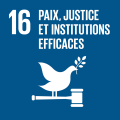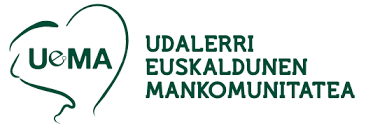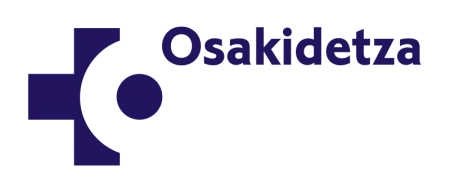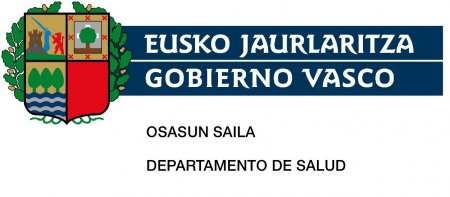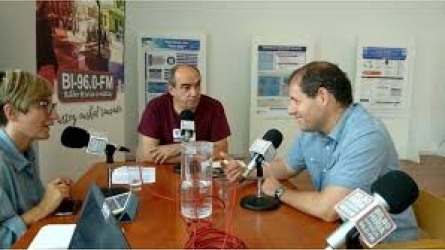
Health and language V: active offer
Description
This Summer Courses held so far, we have analyzed the importance of language in health services, analyzing its situation in international models, reflecting on the situation we are experiencing in Euskal Herria, and underlining the importance of research. The 2022 edition will be part of the active offer.
Linguistic services would be services offered by health institutions to overcome linguistic limitations between users and professionals, both human and technical. The active offer of languages served would consist of an invitation to use the default language, both oral and written, always before the request and without obliging users to request it. The active offer would be the set of measures at an institutional level that guarantee the visibility, accessibility and accessibility of linguistic services, the responsibility being that of the institutions and in no case that of the users.
In this summer course, a broad definition of the active offer adapted to the Basque Country will be worked on, putting the involvement of the community at the center. Its theoretical basis will be linguistic justice, the competency model and active agents. Taking all this into account, different proposals and interventions will be presented at a Basque and international level. When presenting the topics, the levels of supply will be followed: limit situations or lack of supply (Lander Garro), situation of identification of user needs (Alwena Morgan, Fredrika Niqvist), situation based on the supply of services (Urko Ikardo, Arantxa Lekuona), measurement and evaluation of active supply (Aitor Montes). Linguistic justice, ethics (Yael Peled) and the competency model (Huw Lewis) will also be addressed.
Objectives
Preparation of the active offer model.
Explain and learn the different definitions of active offer in different contexts.
Explain and learn the theoretical foundations of the active offer: language, justice and competency model.
Present how the implementation and evaluation of the active offer can be carried out in different locations and levels.
Reflection on the active offer measurement methodology: measure knowledge, attitude and capacity.
Activity directed to
- University student
- Teachers
- Professionals
- All public
Methodology
There will be participatory talks.
It is requested to send the learning and the proposals and recommendations for the future extracted from the summer course to the following address: jon.zarate@ehu.eus
Program
15-09-2022
Harrera
Institutional Opening session. Speaking order:
- Iraitz Lazkano Garitaonandia | UEMA - Zuzendaria
“Erregistroa“Presentation by the Director of the activity
- Jon Zarate Sesma | EHU - Irakasle-ikertzailea
- Aitor Montes Lasarte | Osakidetza - Medikua eta ikertzailea
“Ethics of language policy in health care“
- Yael Peled | Montrealko Unibertsitatea - Irakasle-ikertzailea
“Kudeaketa linguistiko eta kulturala pazientean zentraturiko osasun arretan“
- Jon Zarate Sesma | EHU - Irakasle-ikertzailea
Break
“Eskaintzarik eza edo muturreko egoerak: tipularen seaska kanta“
- Lander Garro | Idazlea eta zinemagilea - Idazlea eta zinemagilea
“Identification of needs from the perspective of users“
- Alwena Morgan | Swansea University - Irakasle-ikertzailea (Participation by zoom)
- Maisie Edwards | Swansea University (Participation by zoom)
16-09-2022
“Linguistic needs in vulnerable situations“
- Fredica Nyqvist | Åbo Akademi University - Irakasle-ikertzailea (Participation by zoom)
“Etorkinei zuzenduriko harrera protokoloak“
- Urko Ikardo Enparan | Bortzirietako Euskara Zerbitzua - Teknikaria
Break
“Hizkuntzen kudeaketa kabiako adinekoen egoitzetan eta eguneko zentroetan“
- Arantza Lekuona | Kabia - Gerentea
“Eskaintza aktiboaren neurketa eta ebaluazioa“
- Aitor Montes Lasarte | Osakidetza - Medikua
Directors
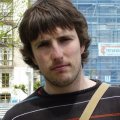
Jon Zarate Sesma
UPV/EHU
Jon Zarate Sesma (Lekeitio, 1979) UPV/EHUko Farmazia eta Elikagaien Zientziak Saileko kide da. Farmazia Fakultateko irakaslea da eta Euskararen eta Etengabeko Prestakuntzaren arloko errektoreordea. Farmazian doktorea da (UPV/EHU, 2007) eta 2016ko osasun-arloko Koldo Mitxelena euskarazko tesi onenaren zuzendaria izan da. Azken urteetan gene terapiarako garraiatzaile ez-biralen garapenean ikertzen aritu da. Goi mailako nazioarteko ikerketa aldizkarietan 20 artikulutik gora dauzka argitaratuta eta euskarazko produkzioa zientifikoa ere nazioartekoaren parekoa dauka Ekaia edo Elhuyar bezalako aldizkarietan.
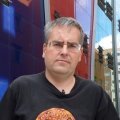
Aitor Montes Lasarte
Osakidetza
Basaurin jaioa (1972), Euskal Herrian. Medikuntzan lizentziaduna UPV/EHUn, 1999an. Familia medikuntzako espezialitatea burutu zuen 2004an, Galdakao-Usansoloko ospitalean (Euskal Herria). Gaur egun familia medikua da Aramaion, Debagoiena Erakunde Sanitario Integratuan (ESI), Osakidetza-Euskal osasun zerbitzuan. OEEko (Osasungoa Euskalduntzeko Erakundea) kidea. Euskal prentsan iritzi artikuluak idazten ditu noizean behin. Hizkuntza eta osasungintzarekin zerikusia duten hamar bat argitaratu ditu aldizkari zientifikoetan, batik bat Osagaiz, BAT soziolinguistika aldizkarian eta International Journal of Integrated Care aldizkarian. Eskalatzailea, zenbait bide berri zabaldu eta argitaratu ditu prentsa espezializatuan.
Speakers

Maisie Edwards

Lander Garro
Lander Garro (Errenteria, Gipuzkoa, 1975eko azaroaren 25a) euskal idazle, argazkilaria eta dokumentalgilea da. Sare Herritarra elkarteak, Gasteibeltza iparraldeko produktorarekin batera, Lander Garrok zuzendutako “Tipula sehaska kanta” film-Dokumentala ekoiztu du, espetxea eta eritasunaren gordina nola bizitzen den azaldu asmo duen lana. Lan hori dela eta gonbidatu dugu uda ikastarora.
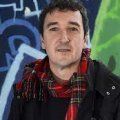
Urko Ikardo Enparan
Bortzirietako Euskara Mankomunitatea
Soziologian masterra ULBn. Soziologian lizentziatua EHUn. Hiznet graduondokoa EHUn. Euskara ardatz izanen duen jendarte kohesioa helburu, etorri berriei harrera eta kultur aniztasuna Bortzirietan. Patri Arburua Etxeberriarekin batera. Bat Soziolinguistika Aldizkaria. 2021. Ikastoletako guraso erdaldunak eta euskararen jarraipena Lapurdiko kostaldean. Bat Soziolinguistika Aldizkaria. 2017.
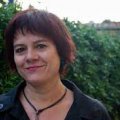
Arantza Lekuona
Nire ibilbide profesionalean euskararen erabilera eta kudeaketaren inguruko interesa izan dut, eta horren ondorioz, ahal izan dudan neurrian, Euskara Batzordeetan parte hartu dut eta hainbat ekintzen sustapenetan. KABIAren kasuan, erakundea 2015ean abian jarri zenetik bertako gerentea izan naiz, eta hasieratik bultzatu dut euskara kudeaketan txertatua egon dadin. Aurretik izan dudan esperientzia guztiak lagundu dit helburu hori bideratzen.
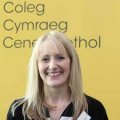
Alwena Morgan
Dr Alwena Morgan is Welsh speaking lecturer in Biomedicine that has been successful in establishing Welsh provision for the undergraduate degree schemes at the Medical School, ensuring that they are eligible for Welsh medium scholarships and bursaries. She has carried out numerous Outreach activities for bilingual school pupils in years 12 and 13 and has been nominated three times for the SUMS Outreach award, which she has won once. She has close links with the Coleg Cymraeg Cenedlaethol.

Fredica Nyqvist
Senior Lecturer, Faculty of Education and Welfare Studies, Social Sciences, Minority Research in Åbo Akademi University. Addressing access to health care and social services for language minorities: best practices and latest evidence.

Yael Peled
A researcher in the complex and fascinating terrain that juxtaposes political science, philosophy and linguistics. Doctor of Philosophy, Politics and International Relations (political theory), Nuffield College, Oxford University (2012) Thesis title: Linguistic Justice and Philosophical Empowerment: Two Justifications for a Plurilingual Theory of Democracy. Global Engagement Research Initiation: "The Ethics of Language Policy and Planning: A New Normative Approach to Contemporary Global Challenges”, Queen Mary University of London (2020).
Registration fees
| Face-to-face | Until 15-09-2022 |
|---|---|
| 80,00 EUR | |
| 68,00 EUR | |
| 56,00 EUR | |
| 20,00 EUR | |
| 68,00 EUR | |
| 68,00 EUR | |
| 0 EUR |
Venue
Carlos Santamaría Zentroa
Plaza Elhuyar, 2. 20018- Donostia / San Sebastián
Gipuzkoa
Carlos Santamaría Zentroa
Plaza Elhuyar, 2. 20018- Donostia / San Sebastián
Gipuzkoa
Sustainable development goals
Agenda 2030 is the new international development agenda approved in September 2015 by the United Nations. This agenda aims to be an instrument to favour sustainable human development all over the planet, and its main pillars are the eradication of poverty, a reduction in equality and vulnerability and fostering sustainability. It is a unique opportunity to transform the world up to 2030 and guarantee human rights for all.

3 - Good health and well-being
Guarantee a healthy life and foster the well-being of all people of all ages. Key issues: universal healthcare coverage, sexual and reproductive health, reduction in the number of road accident casualties, pollution and chemical products, reduction in maternal and neonatal mortality, the end of epidemics such as AIDS, combating hepatitis and other water-borne diseases, drug and alcohol prevention, control of tobacco.
More information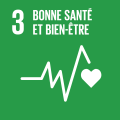
10 - Reduced inequalities
Reduce inequality in countries and between them. Key issues: promotion of the social, economic and political inclusion of all people, equal opportunities, fiscal, wage and social protection policies to favour equality, migration and the policies that affect it, official assistance for the development, regulation and supervision of world institutions and markets.
More information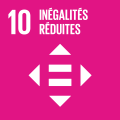
16 - Peace, justice and strong institutions
Foster peaceful and inclusive societies for sustainable development, facilitate access to justice for everyone and construct efficient and inclusive institutions that are accountable at all levels. Key issues: a reduction in violence, mistreatment and exploitation, the rule of law, equal access to justice, a reduction in corruption and bribery, efficient and transparent institutions, participation, access to information, protection of fundamental freedoms.
More information